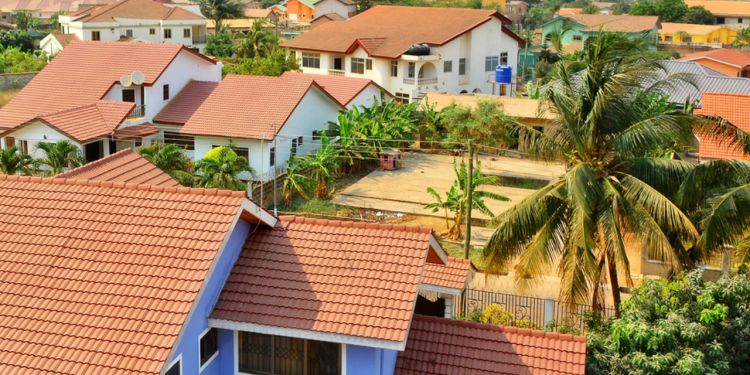Accommodation in Nigeria

Nigeria suffers from a stark housing deficit, and only few of the units available meet Western expat standards. Accordingly, the cost of quality housing is quite high, and finding accommodation in Nigeria without the help of a corporate sponsor can be challenging. Here is a walk-through of Nigeria's housing market.
Types of accommodation in Nigeria
Nigerian housing units typically vary by geographical location. In the coastal areas the walls and roofs are made from raffia palm, while you will find mud houses with roofs made of mat or grass thatch in drier rural areas.
In urban centres, the haphazard concentration of population has caused the spread of slums and shantytowns, comprised of makeshift homes randomly built from pretty much any available materials. These impoverished residential areas are mostly home to low income Nigerians - half the country's population lives on less than $1 a day.
Federal housing programs have been endeavouring to curb the sprawl of slums and to provide funds for the establishment of proper yet low-cost housing for city dwellers.
Still, decent apartments, houses or bungalows in Nigeria are scarce and therefore hard to come by.
Living areas in Nigeria
Quality housing units are usually concentrated in specific areas in or around cities, and organised in compounds or complexes.
Some of them are fully reserved for expats, and include 24-hour security, phone and Internet access, among other amenities. Homes in these gated communities are generally spacious, modern, and can come fully furnished, semi-furnished or unfurnished.
For swanky and luxurious housing, head for the Maitama or Mississippi areas in Abuja, and the Victoria Island and Ikoyi districts in Lagos.
Cost of accommodation in Nigeria
Accommodation in a modern, safe housing unit in Nigeria can be incredibly high. Typical monthly rents for a quality, furnished two-bedroom apartment can reach NGN 850,000, and as much as NGN 1,500,000 for a furnished two-bedroom villa.
Additionally, you will face other expenses, such as the purchase and maintenance of a power generator and a borehole to cope with the country's regular power cuts, or even a security force in some areas.
Most companies hiring foreigners have, fortunately, anticipated the situation and provide their foreign recruits with home arrangements, and more often than not even pay for the rent. Do not hesitate to ask prospective employers about housing benefits, as this is standard practice in the country.
Good to know:
You should have your home fumigated every three months or so in order to avoid pest proliferation.
Buying property in Nigeria
Most expats in Nigeria just do without buying land, as foreign ownership of property in Nigeria is regulated by the government.
Land can never fully be owned privately, and state's consent is needed for any arrangement providing the right to use, occupy, or modify property.
If you are set on purchasing property in Nigeria, we strongly suggest that you consult a local specialised lawyer.
Finding accommodation in Nigeria
Should your employer not provide you with housing, be prepared to pay rent two years upfront.
Although you may first get a look at the useful links below to get an idea of what's available in your price range, it is recommended to seek advice from a trustworthy local source, such as a real estate agent, before signing anything.
Useful links:
Nigeria Property centre
Private property
Century 21
Property 24









